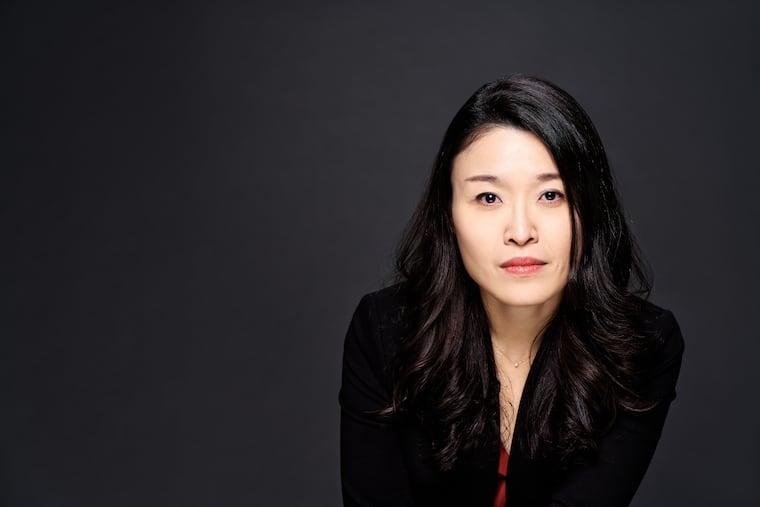A Philadelphia Orchestra conducting debut that made everything sound new
Conductor Daniele Rustioni led the Philadelphians in a program that included Pictures from an Exhibition.

After a lifetime of listening to Mussorgsky’s Pictures at an Exhibition and decades of encountering the Philadelphia Orchestra, the chances of hearing both with virgin ears is not very likely.
But it happened — at least for me — in the entire concert on Friday with two debuts, that of guest conductor Daniele Rustioni and the 2006 piece, titled The Desires, by Curtis Institute faculty composer Ke-Chia Chen.
The 42-year-old Taiwan-born Chen writes pieces that hover between concertos and atmospheric tone poems with titles that are evocative and ambiguous: The Desires, for one, with a concerto-like solo role taken by Philadelphia Orchestra principal violist Choong-Jin Chang.
Though written in the typical three-movement format of concertos, the piece seemed liberated from the more detailed structural concerto traditions. In the middle of the first movement, lyrical expressions of longing launched into a fearless sense of confession.
And it’s here that the performance departed from others I’ve heard. What previously seemed like an affecting lyrical outpouring like Chausson’s Poème became something darker and more expressionistic along the lines of Shostakovich. Orchestral harmonies were grittier and incisive.
Even in the final movement where Chen includes a delicate folk-like melody, anguish was never far off. Is this what the composer meant all along? Or has the piece soaked up more recent anxieties in that part of the Far East? Whatever the case, The Desires can speak for worldwide citizens concerned over the fate of Taiwan.
Elsewhere in the concert, Rustioni quickly established himself as a major presence with a particularly keen ear for drawing colors from the orchestra that weren’t just pleasing but meaningful. Rustioni brought an operatic sense of narrative to Beethoven’s Leonore Overture No. 3 that built the music into a climax that was all the more impressive for the accumulation of details along the way. (Same thing with the Rigoletto that he recently conducted at the Metropolitan Opera.) The minor miracle is that such details never became fussy or detracted from his Dionysian energy. Similarly, the grandeur-in-the extreme quality he brought to Pictures at an Exhibition never became vulgar.
From the outset, Mussorgsky captures the art museum process, in which one vividly enters the emotional world of a painting, but leaves it just as quickly (as represented by the “Promenade” theme) and then on to the next. I could swear that I have seen all the original Viktor Hartmann paintings that inspired the composer. In fact, I couldn’t have, since not all of them survive, and it’s thought that Mussorgsky conflated a few of them in his mind in the creation of a single movement.
Hartmann’s work may well be the greatest paintings that nobody in modern times has actually seen. The music, composed in a few weeks in 1874, is a triumph over the composer’s debilitating alcoholism that would eventually kill him. The 1922 Ravel orchestration, heard here, insured the music’s immortality, while continuing to challenge orchestras with its interlocking pieces often spread throughout the orchestra.
Rustioni had a high time with it, building the piece on a particularly rich foundation of double bass sound, characterizing each of the piece’s sections like an operatic world unto itself, and releasing the Philadelphia brass (headed by trumpeter David Bilger) to outdo themselves. The program will be repeated 8 p.m. Saturday at the Kimmel Center. Tickets: $48-165. Information: www.philorch.org. or 215-893-1999.
Note: The fact that the Philadelphia Orchestra program spelled the composer’s name “Musorgsky” (only one “s”) and titled the piece “Pictures from an Exhibition” does not necessarily mean that the orchestra book is trying to confuse us. Transliteration from the original Russian offers multiple options.